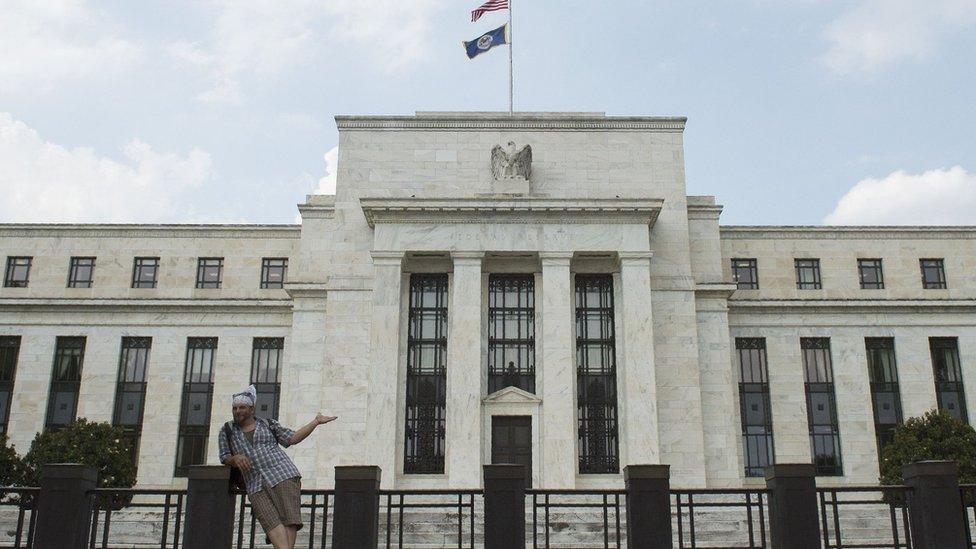Fed: US banks have money for crisis
- Published

The 34 largest banks in the US have money on hand to withstand a severe recession, the US central bank said on Thursday.
The finding comes from an annual "stress test" conducted by the Federal Reserve.
The tests were put in place after the financial crisis to strengthen financial capacity in the event of a downturn.
Banks have been pushing to relax those rules.
Some said Thursday's results could make it easier to convince policymakers to do so.
"We see today's ... stress test results as a positive for Trump administration efforts to deregulate the banks," Jaret Seiberg, a policy analyst with Cowen & Co, told Reuters.
The Federal Reserve tested to see how banks with $50bn (£39.4bn) or more would respond in the event of a global recession, if unemployment increased to 10% and property values declined.
That would trigger combined losses of nearly $500bn over more than two years - including $383bn from loans - but the firms have enough of a cushion to handle such a blow, the Federal Reserve said.
Since 2009, the 34 firms have added more than $750bn in common equity capital, the Federal Reserve said.
Jerome H Powell, a governor of the Federal Reserve who has urged some regulatory reform, said the tests show that "even during a severe recession, our large banks would remain well capitalised".
"This would allow them to lend throughout the economic cycle and support households and businesses when times are tough," he said.
The firms reviewed included Bank of America, JP Morgan Chase and Wells Fargo.
A second, more closely watched component is due next week.